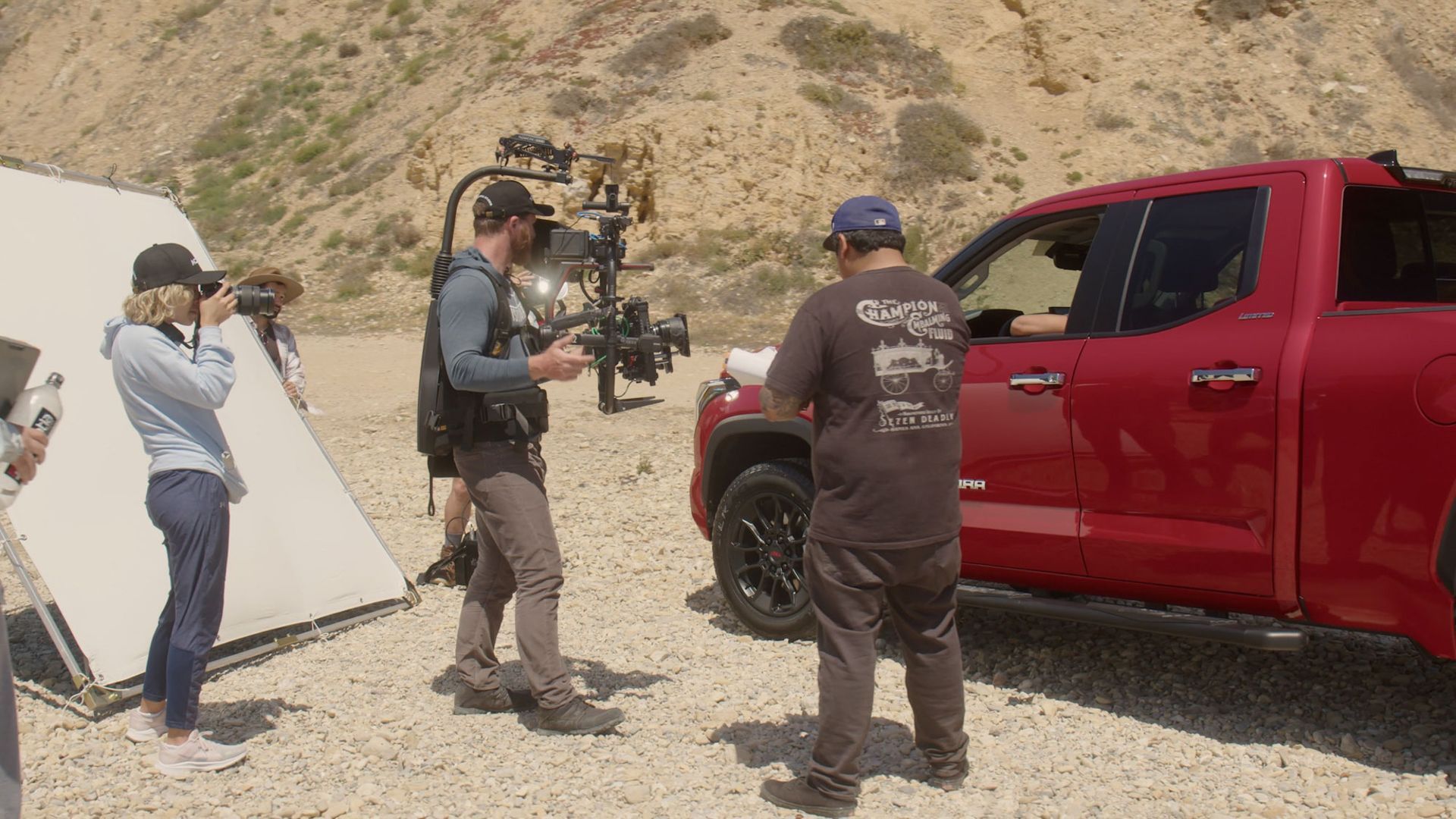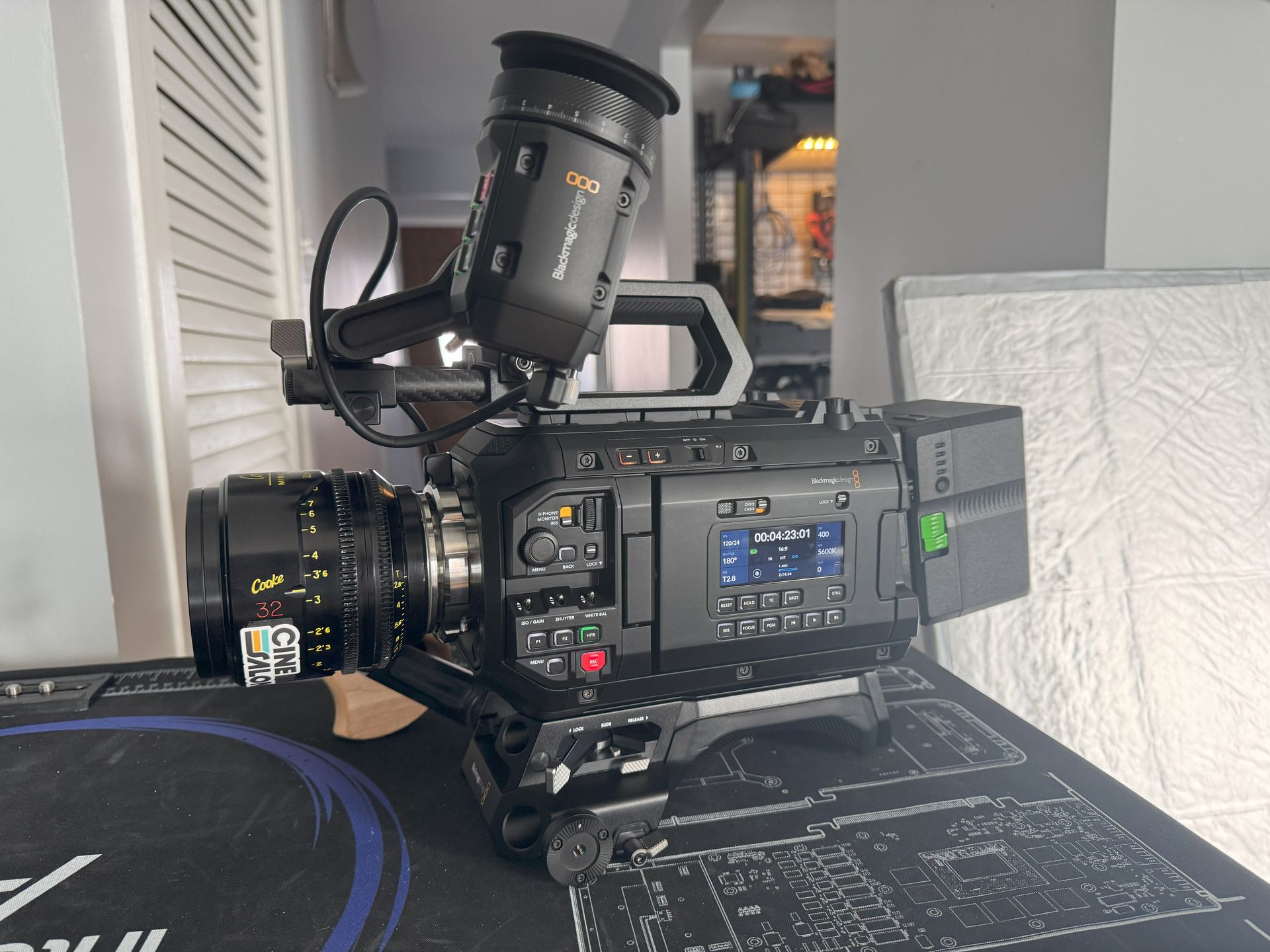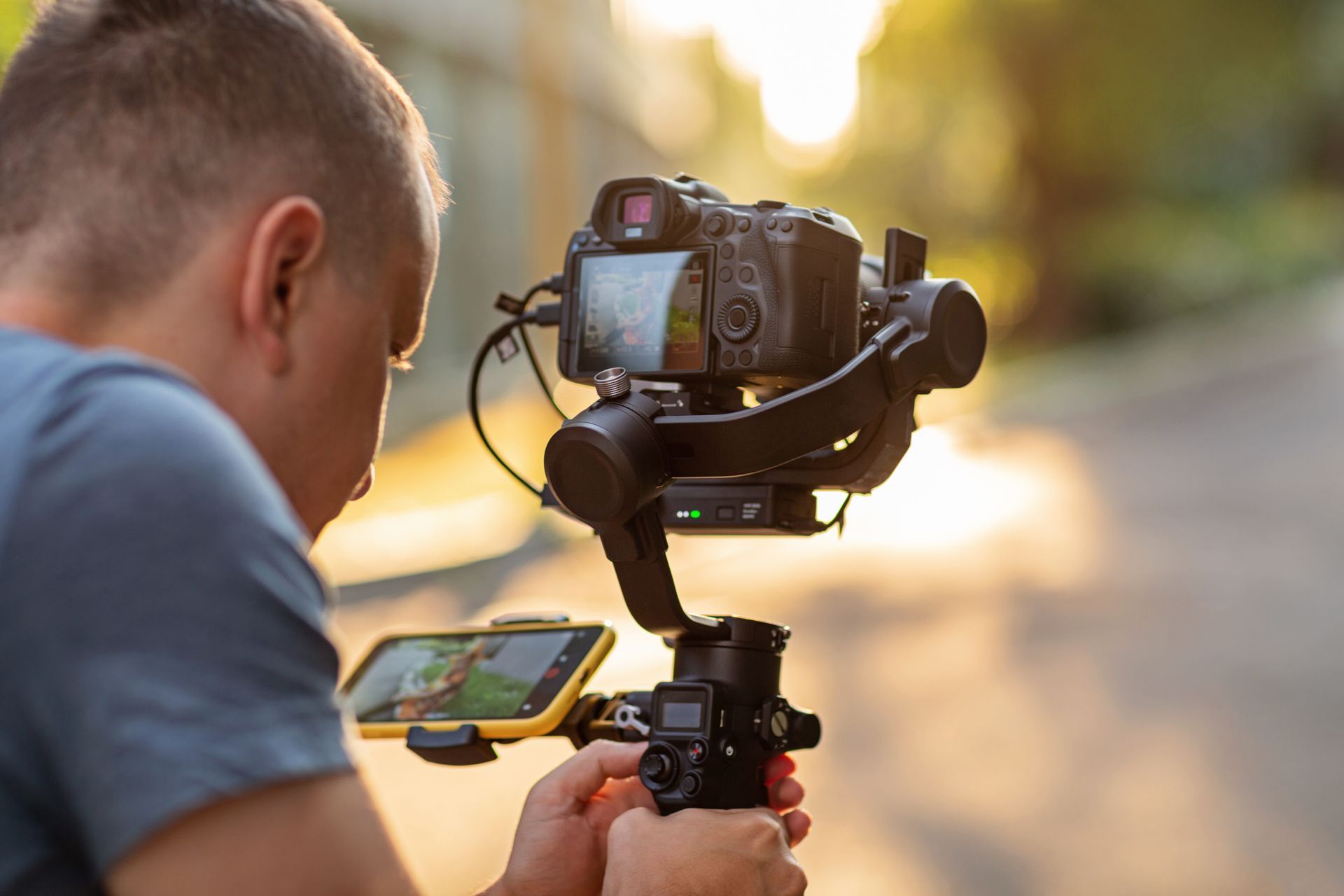In advertising, visuals are pivotal in capturing the audience's attention. But typography is one often underestimated element that can make or break an ad's effectiveness. This blog post examines the role of typography in advertising, highlighting the impact of appropriate font selection, styles, and layout choices in crafting visually appealing designs that leave a memorable mark.
Whether you are a marketing professional seeking to increase audience engagement or a designer seeking to augment your creative toolkit, a comprehensive comprehension of the importance of typography in advertising is imperative.
Let's explore the key aspects of this art form and how it can elevate your advertising game.
The Role of Typography in Advertising
Typography serves as the visual representation of your message. It's the art of arranging typefaces to communicate the words and your ad's mood, tone, and essence. Effective typography can enhance readability, evoke emotions, and establish brand identity—all crucial to successful advertising.
Choosing the Right Fonts
Choosing the right fonts is the first step in creating websites with typography that grabs attention. Different fonts convey different personalities and emotions. As an illustration, a whimsical and handwritten font can effectively complement an advertisement for children's toys. In contrast, a sophisticated and contemporary font is better suited for promoting high-tech gadgets. It is crucial to contemplate the message you aim to convey and the target audience you intend to engage.
Font Styles and Hierarchy
Once you've selected your fonts, it's essential to consider font styles and hierarchy. Font styles can emphasize key points in your ad. Establishing a clear order ensures your audience knows where to focus their attention first. Headlines, subheadings, and body text should all have distinct styles to guide the reader through the ad.
Layout and Spacing
The arrangement of text elements in your ad is equally important. Proper spacing and layout can make your ad visually appealing and easy to read. Consider the balance between text and visuals, ensuring the typography complements the overall design. Too much text in a cluttered layout can overwhelm the viewer, so strike a balance that highlights your message without being intrusive.
Color and Typography
Color choices play a significant role in ads with typography. Your colors can evoke specific emotions and tie into your brand identity. Ensure that your color scheme complements your chosen fonts and reinforces the overall message you want to convey.
Consistency and Branding
Consistency is key in advertising. Establishing a consistent typography style across all your ads helps build brand recognition. When consumers see your distinctive typography, they associate it with your brand, creating a sense of trust and familiarity.
Understanding the Power of Typography in Ads
Typography, often considered the unsung design hero, has immense advertising power. It's not just about selecting fonts randomly; it's a strategic choice that can profoundly influence how your audience perceives your brand. Let's unravel the layers of this art form and understand how ads with typography can create a lasting impact.
Typography: The Voice of Your Brand
Typography serves as the voice of your brand. Each font has its personality—a unique way of conveying messages. A bold, sans-serif font exudes confidence and modernity, ideal for brands aiming for a cutting-edge image. In contrast, a cursive, elegant font might befit a luxury brand, invoking feelings of sophistication and grace. Understanding these nuances helps marketers and designers choose fonts that align with the brand's personality, ensuring consistency across all advertising materials.
Real-Life Inspirations
Let's look at some real-life examples where typography has been utilized ingeniously to capture attention and communicate messages effectively.
1. Coca-Cola's Timeless Elegance
Coca-Cola, a brand known for its timeless appeal, often uses a distinctive, flowing script font in its ads. This choice conveys a sense of nostalgia and warmth, enhancing the brand's emotional connection with consumers. The elegant curvature of the letters mirrors the effervescence of their beverages, creating a harmonious blend of visual and sensory experience.
2. Apple's Minimalistic Mastery
Apple, renowned for its minimalist approach, opts for clean, sleek fonts in its advertising campaigns. The simplicity of their typography mirrors the simplicity of their products. The focus is on the message—crisp, clear, and uncluttered. Apple uses typography that matches its product design to create a brand that relates to its audience.
3. Nike's Bold Statements
Nike, a brand synonymous with energy and empowerment, uses bold, dynamic fonts in its ads. The strong, uppercase letters exude confidence and determination, perfectly aligning with Nike's message of motivation and drive. The typography visualizes the brand's ethos, inspiring customers to push their limits and achieve greatness.
Choosing the Right Fonts for Your Ads
Now that we understand the power of typography in ads, it's time to dive deeper into selecting the perfect fonts. Selecting fonts that match your brand and message is vital to creating effective ads. The fonts should look good and convey the intended emotions and messages.
Font Selection
The fonts you choose should reflect your brand's identity and values. Just as your logo, color scheme, and tagline are carefully crafted to convey a specific image, your typography should do the same. Think of fonts as the verbal embodiment of your brand's personality. Here are a few considerations:
Consistency
Maintain consistency across all your marketing materials. Use the same fonts in your print ads, online banners, and social media posts to strengthen your brand image.
Legibility
While creativity is essential, don't sacrifice legibility. Ensure your fonts are easily read, especially on different screens and resolutions.
Personality Match
Consider the personality of your brand. Is it youthful and energetic, or sophisticated and timeless? Match your font choices accordingly to create a cohesive image.
Versatility
Think about the versatility of your chosen fonts. They should work well in various contexts and sizes, from billboards to mobile ads.
Tips for Choosing Legible and Visually Appealing Fonts
Font Families
Explore font families, such as sans-serif, serif, script, and display fonts. Each category has its characteristics and applications. Sans-serif fonts are clean and modern, perfect for digital marketing. Serif fonts are traditional and elegant.
Readability
Consider letter spacing (kerning), line spacing (leading), and letterforms when choosing fonts. Fonts that are too intricate or condensed may hinder readability.
Hierarchy
Create a clear order by selecting fonts for different text elements in your ad. Use a bold, attention-grabbing font for headlines, a complementary font for subheadings, and a clean, readable font for body text.
Font Pairing
Experiment with font pairing. Combining two or more fonts can create visual interest. Just ensure that they complement each other and maintain a cohesive feel.
Examples of Ads with Different Font Choices
Let's examine how font choices can impact the overall design of an ad.
Ad 1: Playful and Youthful
A playful and youthful font is used for the headline in an ad for a children's amusement park. The rounded letters and vibrant colors convey a sense of fun and excitement, aligning perfectly with the target audience.
Ad 2: Timeless Elegance
A luxury watch brand opts for a serif font in their print ad. The fancy, curved letters show timeless style, matching the brand's image of exactness and skill.
Ad 3: Modern and Minimalistic
A tech company's online banner ad features a clean, sans-serif font. The simplicity of the font aligns with the brand's minimalist design ethos, making the message clear and uncluttered.
Creating Hierarchy and Visual Interest with Typography
Now that we've explored the art of choosing the right fonts, it's time to dive into the next level of typographic mastery— creating hierarchy and visual interest. This aspect of ads with typography ensures your message is heard and seen clearly.
Hierarchy
Typography is a powerful tool for guiding the viewer's attention to the most important information in your ad. Establishing a clear hierarchy lets you direct the viewer's eyes to key elements in a deliberate sequence. Here's how the scale works:
Headlines
Your headline should be the focal point—the first thing viewers notice. Use a bold and eye-catching font, larger than the rest of the text, to draw attention to it. Make sure the headline encapsulates the essence of your message.
Subheadings
Subheadings provide additional context and structure to your ad. Use a slightly smaller but still prominent font for subheadings to help viewers navigate the content.
Body Text
The body text is where you provide detailed information. Use a legible font, smaller than the headline and subheadings but still easily readable. Maintain proper spacing to ensure comfort while reading.
Creating Visual Interest
Visual interest is crucial in ads with typography. Engaging typography keeps the viewer's attention and makes your ad stand out. Here are some tips for creating visual appeal:
Contrast
Use contrast to your advantage. Experiment with font size, weight, and style variations to create visual contrast. For example, you can make key phrases or words larger or bolder to emphasize their importance.
Font Pairing
We mentioned font pairing earlier, and it's worth reiterating. Combining fonts with contrasting styles can add intrigue to your ad. Just be sure that the fonts complement each other and maintain readability.
Alignment
Play with text alignment to break the monotony. Centered text can create a different visual impact than left-aligned or justified text. Consider aligning text to support the message and the overall design.
Examples of Ads with Effective Hierarchy and Visual Interest
Let's examine some real-world examples to see how hierarchy and visual interest can elevate ads with typography.
Ad 1: Bold Hierarchy for a Sale Event
An ad promoting a clearance sale uses a bold, oversized font for the headline: "Massive Discounts Inside!" This immediately grabs attention and communicates the primary message. Smaller subheadings provide additional sales details, guiding viewers through the ad effortlessly.
Ad 2: Elegant Visual Interest for Jewelry
An ad for a high-end jewelry brand employs a sophisticated serif font for the headline, "Timeless Elegance in Every Piece." The contrast between the ornate script and the refined serif font adds a touch of luxury and visual intrigue. Subtle variations in font size emphasize specific product features.
Ad 3: Playful Typography for a Children's Book
An ad promoting a new children's book uses playful typography with varying sizes and styles. The headline, "Adventure Awaits with Captain Squeaky!" features whimsical, hand-drawn letters that capture the story's spirit. Subheadings in a simpler font provide essential details for parents.
Combining Typography with Images and Colors
Having delved into the intricate aspects of typography and hierarchy, the next progression in achieving proficiency in advertising through typography is combining typography with images and colors. This integrated approach enhances the overall quality of your design. It will look cohesive and visually captivating.
Integration of Typography, Images, and Colors
In advertising, words, visuals, and colors must harmonize harmoniously to convey a powerful message. Typography can make a smooth and powerful design with images and colors. Here's how to achieve this synergy:
Image Selection
Choose images that resonate with your brand and message. The visuals should complement the typography, not compete with it. For instance, if advertising a serene spa retreat, opt for images of tranquil landscapes that align with the calming font choices.
Color Coordination
Your color palette should harmonize with the typography and the images. Colors can convey emotions and set the mood. Ensure that your color choices align with your brand identity and the message you want to get. For example, a bold, vibrant color scheme can inject energy into a sports ad, enhancing the impact of the typography.
Placement and Composition
Pay attention to the order of text elements within the image. Typography should enhance the visual appeal while guiding the viewer's eyes. Experiment with different text placements to find the best for your ad.
Tips for Selecting Images and Colors that Complement Typography
Maintain Contrast: Ensure enough contrast between the typography and the background image. This ensures legibility and makes your message stand out.
Consistency in Branding
Stick to your brand's color scheme and fonts consistently across all advertising materials. This reinforces your brand identity and fosters recognition among your audience.
Consider Emotional Impact
Understand the emotional impact of colors and images.
Examples of Ads with Successful Typography, Images, and Colors
Now, look at real-life examples of ads that use typography, images, and colors to make a strong impact.
Ad 1: Adventure Travel
The ad for adventure travel shows big, simple letters on a picture of a huge mountain scene. The image has bright blue and green colors that match the brand's logo and typography. This makes it feel exciting and adventurous.
Ad 2: Fine Dining
A high-end restaurant ad combines elegant script typography with a close-up image of a beautifully plated gourmet dish. The dark background makes the word look better and matches the fancy font for a classy appearance.
Ad 3: Tech Gadgets
An ad for the latest tech gadgets pairs modern sans-serif typography with images of sleek, futuristic devices. The idea mostly has white and metallic colors matching the clean lines of the fonts. This makes the products seem very modern.
Conclusion
To create effective ads, you must balance fonts, hierarchy, and visuals and integrate them seamlessly. Use these elements to create designs that catch people's attention and deliver your message well. Typography is more than a tool. It's a language that shows your brand's character. It can make your advertising stand out in a busy marketplace when used well. Embrace typography. Experiment and let your creativity flourish. Craft ads that leave a lasting imprint on minds.

Get total clarity on your video marketing and paid media with our FREE comprehensive data audit.







